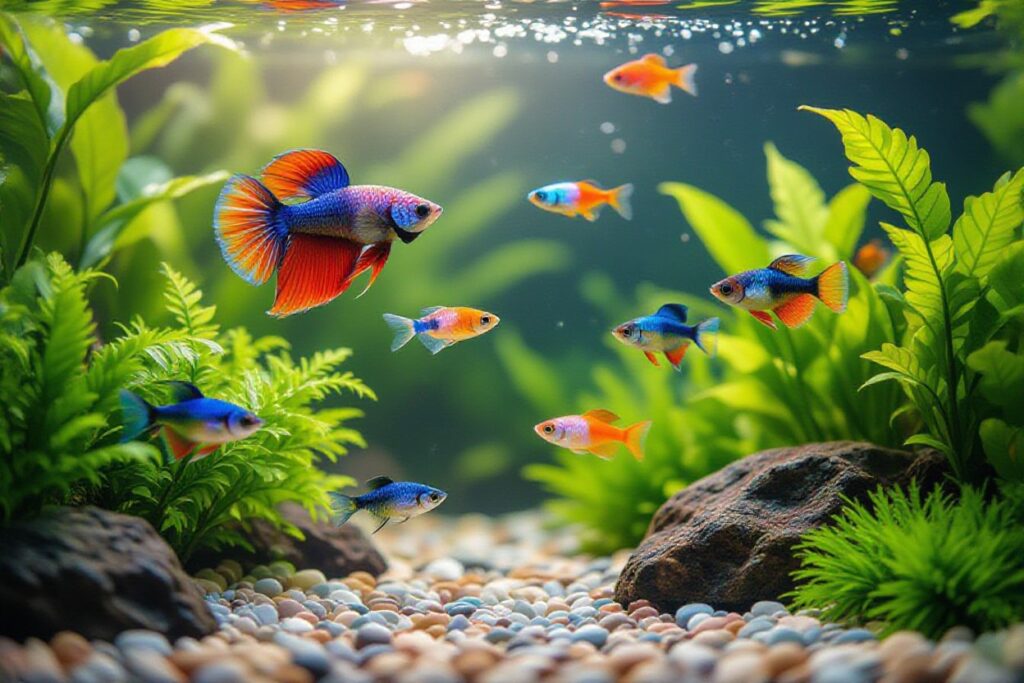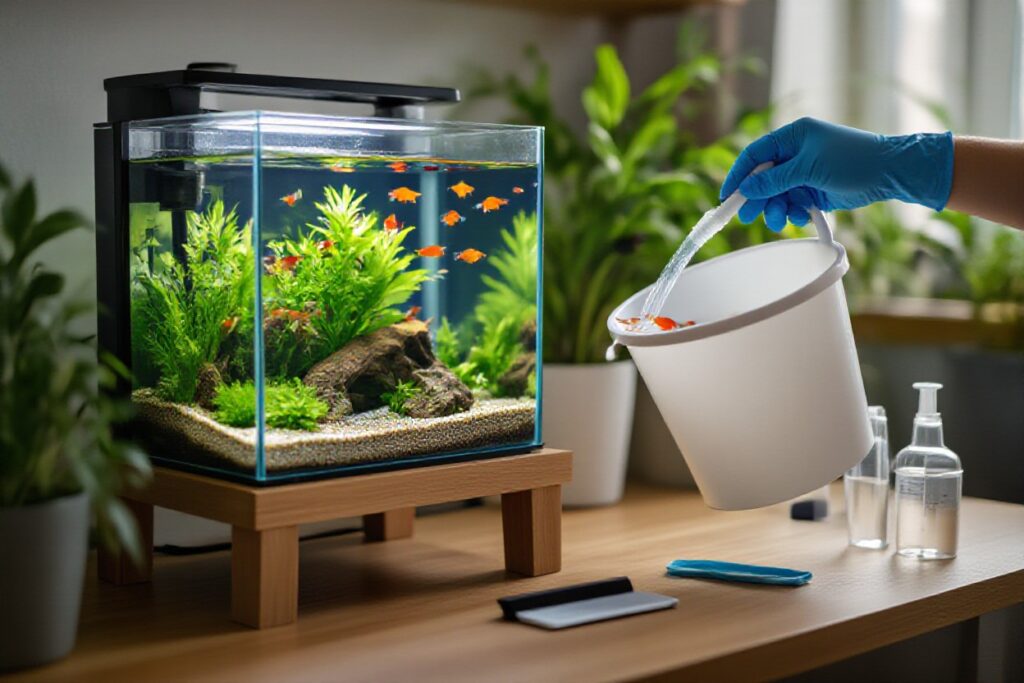There’s a lot to consider when it comes to the health and wellness of our aquatic friends. Just like any other living creature, fish require a certain level of care to thrive in their environment. From water quality and diet to disease prevention and tank maintenance, understanding the basics of fish health is crucial for any fish owner. In this blog post, we’ll examine into the key factors that contribute to the well-being of your fish and provide helpful tips to ensure they live happy and healthy lives. Let’s dive in and explore the world of fish health and wellness together.

Water Quality and Habitat
Essential Water Parameters
Quality water parameters are important for the health and well-being of your fish. The key parameters to monitor include temperature, pH, ammonia, nitrite, and nitrate levels. Sudden fluctuations in these parameters can stress or even harm your fish, so it’s crucial to regularly test and maintain optimal water conditions.
Creating and Maintaining a Healthy Environment
Essential to the overall health of your fish is creating and maintaining a healthy habitat. This involves providing adequate filtration to remove waste and toxins, proper aeration for oxygenation, and ensuring proper circulation to prevent stagnant areas where harmful bacteria can thrive. Regular water changes and substrate cleaning are also vital in maintaining a clean and healthy environment for your fish.
Environment is the key to ensuring your fish thrive in their habitat. Choose appropriate decor that provides hiding spots and stimulates natural behavior. Maintain a consistent lighting schedule to mimic their natural environment and promote a healthy stress-free routine for your fish. By carefully curating their living space, you can help ensure the overall well-being and longevity of your aquatic pets.

Nutrition and Feeding
Dietary Requirements
Nutrition is a critical aspect of maintaining the health and wellness of your fish. To ensure they thrive, it is imperative to understand their dietary requirements. Different species of fish have varying nutritional needs based on their natural habitat and feeding habits. Consulting with a veterinarian or a fish nutrition expert can help you determine the ideal diet for your specific fish.
Feeding Practices and Strategies
Any successful fish keeper knows that proper feeding practices are vital in promoting fish health. Overfeeding can lead to water pollution and obesity, while underfeeding can result in malnutrition. It is crucial to establish a feeding schedule and stick to it consistently. Additionally, offering a variety of high-quality foods can help ensure your fish receive a well-rounded diet. Observing your fish during feeding times can also help you monitor their health and appetite.
This approach allows you to adjust their diet and feeding practices accordingly. Note, each fish is unique, and their nutritional needs may change over time. By staying informed and attentive to your fish’s feeding habits, you can contribute significantly to their overall health and longevity.

Disease Prevention and Management
Common Fish Diseases
An vital aspect of fish health and wellness is understanding common diseases that can affect your pets. Common fish diseases include ich, fin rot, and velvet, which can be caused by poor water quality, stress, or the introduction of infected fish. Recognizing the signs of these diseases early on is crucial for effective treatment and prevention of further spread within your aquarium.
Diagnosis and Treatment Options
To effectively manage fish diseases, timely diagnosis and appropriate treatment are key. Upon noticing any unusual behavior or physical symptoms in your fish, it is vital to consult with a veterinarian or a knowledgeable aquarium professional for proper diagnosis. Treatment options may vary depending on the disease, but common methods include medication, water quality management, and quarantine protocols.
Another crucial aspect of diagnosing fish diseases is conducting thorough research on the specific symptoms and characteristics of each illness. Different diseases may present similar symptoms, so proper identification is necessary for providing the correct treatment. Consulting with experienced fishkeepers or aquatic veterinarians can help in accurately diagnosing and treating any health issues your fish may be facing.
Stress Reduction and Behavioral Health
Identifying Signs of Stress in Fish
After being aware of the basic needs of your fish, it is important to recognize signs of stress in their behavior. Fish under stress may exhibit symptoms such as decreased appetite, abnormal swimming patterns, changes in coloration, or excessive hiding. Being observant and noticing these indicators early can help prevent further health issues in your aquatic pets.
Methods for Promoting a Stress-Free Life
Promoting a stress-free environment for your fish is crucial for their overall wellness. Maintaining a clean tank with proper filtration and water parameters, providing appropriate tank mates, and ensuring a balanced diet are important for reducing stress levels. Additionally, creating hiding spots, introducing plants for natural habitat simulation, and keeping a stable routine can all contribute to a calm and safe space for your fish.
Understanding the importance of minimizing stress in fish is key to ensuring their longevity and well-being. By implementing these methods for promoting a stress-free life, you can help create a harmonious and healthy environment for your aquatic companions.
FAQ
Q: What are some common signs of a healthy fish?
A: Common signs of a healthy fish include clear and bright eyes, vibrant colors, active swimming behavior, and healthy appetite.
Q: How can I maintain good water quality for my fish?
A: To maintain good water quality for your fish, regularly test water parameters, perform partial water changes, and use a filtration system appropriate for your tank size.
Q: What are some common fish diseases and how can I prevent them?
A: Common fish diseases include ich, fin rot, and fungal infections. To prevent them, quarantine new fish before adding them to your tank, maintain a clean environment, and avoid overcrowding.
Q: How often should I feed my fish?
A: The feeding frequency varies depending on the fish species. Generally, feeding your fish small amounts 1-2 times a day is sufficient. Avoid overfeeding as it can lead to water quality issues.
Q: What should I do if my fish is showing signs of illness?
A: If your fish is showing signs of illness such as lethargy, loss of appetite, or abnormal behavior, isolate the affected fish, test water parameters, and consult with a vet specializing in fish health.
Q: How can I acclimate new fish to my tank?
A: To acclimate new fish to your tank, float the container in the tank to adjust temperature, slowly add small amounts of tank water to the container over time, and gently release the fish into the tank using a net.
Q: What is the importance of quarantine tanks for fish health?
A: Quarantine tanks are crucial for preventing the spread of diseases to your main tank. New fish should be quarantined for at least 2-4 weeks to monitor for any signs of illness before introducing them to your main tank.











